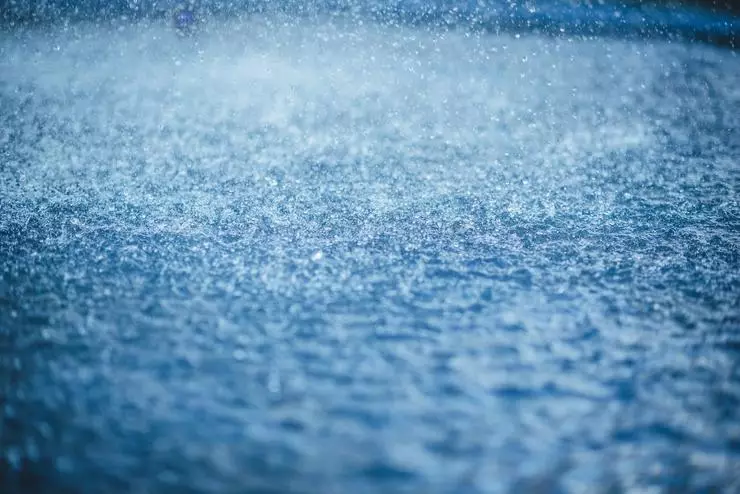If you have ever had a strong headache or migraine, you know how much this state can be exhausting. Ignorance when the next headache is approaching, it may make it difficult to draw up plans or, in some cases, the inability to fully enjoy life. Changes in atmospheric pressure can cause headache, so it is important to know about the upcoming changes in weather if the atmospheric pressure is the defining factor for you.
Symptoms
Head pains associated with atmospheric pressure occur after the fall in atmospheric pressure. They seem typical headache or migraine to you, but you may have some additional symptoms, including:
nausea and vomiting
Increased light sensitivity
Friend of face and neck
Pain in one or both temples

Temperature differences and natural phenomena cause pressure shift
Photo: unsplash.com.
The reasons
When the external atmospheric pressure decreases, the difference between the pressure of external air and air in the nasal sinuses is created. It can cause pain. The same thing happens when you fly on the plane. Because the pressure changes with a height of take-off, you can feel pain in your ears or from this change. In a study conducted in Japan, sales of one medicine from headaches were studied. Researchers saw the relationship between an increase in sales of drugs and changes in atmospheric pressure. Based on this, the researchers came to the conclusion that the decrease in the barometric pressure causes an increase in the cases of headaches.
Another study, also spent in Japan, has shown similar results. During the experiment, 28 people with migraine in history led the headache diary for one year. Migraine frequency increased in days when the atmospheric pressure was lower than 5 hectopascals (GPA) than the previous day. Migraine frequency also decreased in days when the atmospheric pressure was 5 GPa or higher than the previous day.
When to consult a doctor
Consult a doctor if headaches affect the quality of your life. In an earlier study of migraine 39 of 77 participants were sensitive to weather changes, such as atmospheric pressure. Also, 48 participants reported that, in their opinion, their headaches were caused by the weather. That is why it is so important to track your symptoms and inform the doctor about all changes or patterns. However, pain can be another explanation, so it is better to analyze the symptoms together.
How it is diagnosed
Special test for the diagnosis of barometric headaches does not exist, so it is important to provide a doctor as much information as possible. Your doctor will ask about:
when headaches arise
How long they last
what makes them stronger or weaker
Try to keep a headache diary at least for a month before revising it with your doctor. This will help you accurately answer their questions or see the patterns that you have not noticed.
If you first apply to the doctor about headaches, he will most likely hold a full examination. The doctor will ask about the history of the disease, as well as the family members suffering from chronic headaches or migraine. It can also recommend to spend some tests to exclude other, more serious causes of headaches. These tests may include:
Neurological examination
blood tests
MRI
CT scan
Lumbar puncture

Although it is impossible to test a person for meteo sensitivity, the doctor will find how to help you
Photo: unsplash.com.
Treatment with non-drugs
Treatment of headaches associated with atmospheric pressure differs from a person to a person and depends on how strong headaches are headaches. Some people can cope with the symptoms with medicines released without a prescription, such as painkillers. However, drugs can be addictive, so it is important to use them in accordance with the directions of the doctor. Take care of your body and other ways. Try it:
Sleep from 7 to 8 hours every night.
Drink at least eight water glasses per day.
Do the exercises most of the days a week.
Observe a balanced diet and do not skip meals.
Practice Relaxation techniques if you experience stress.
